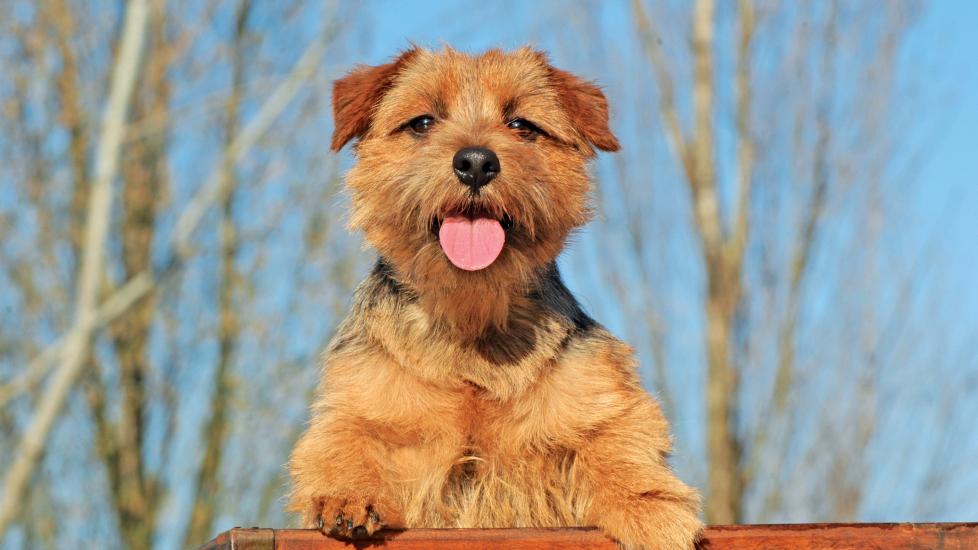Introduction:
The Norfolk Terrier is one of two terriers that originated from the now-extinct Norwich Terrier. It was recognized as its own breed by The Kennel Club in 1932. This small but feisty breed has gained popularity for its intelligence, agility, and adaptability.
Lifespan:
The average lifespan of a Norfolk Terrier is around 12 to 15 years with proper care and regular veterinary checkups.
Coat Length:
This breed features a wiry double coat that requires grooming every few weeks to keep it looking healthy and tangle-free. Hand stripping or clipping can be done occasionally to maintain the coat’s texture.
Alias(es):
N/A (though it may sometimes be confused with the Norwich Terrier)
Height:
These dogs typically stand between 8 inches (20 cm) and 10 inches (25 cm) at the shoulder when fully grown. They are known for being sturdy despite their smaller stature.
Place of Origin:
England
Body Size:
Considered a toy or miniature terrier, they have compact bodies with short legs and a robust frame. Weighing approximately 11 to 12 pounds (5 to 5.4 kg), these pups pack quite a punch!
Shedding Level:
Low; because of their wiry coats, they do not shed excessively, making them suitable pets for allergy sufferers if kept well groomed.
Trainability:
Intelligent and eager to please, Norfolk Terriers respond well to positive reinforcement training methods such as treats, praise, and playtime rewards. Their strong will and independent streak require patient handlers who establish clear boundaries early on.
Temperament and Characteristics:
Known for their lively personalities, Norfolk Terriers make great family companions due to their affectionate nature. They love company and thrive in an active household where they get plenty of exercise and mental stimulation. These dogs are also curious explorers and enjoy digging and chasing after rodents, so a securely fenced yard is essential.
Health Considerations:
Like many other terrier breeds, Norfolk Terriers can suffer from certain health issues such as Legg-Calvé-Perthes disease, patellar luxation, dental problems, and skin allergies. Regular vet visits and maintaining a healthy lifestyle help manage these conditions effectively.
Exercise Needs:
Daily walks and play sessions are necessary to satisfy this breed’s high energy levels. Interactive activities like fetch, agility courses, or even scent work can provide additional physical and mental challenges that they enjoy.
Conclusion:
If you’re looking for a small yet spirited companion that loves adventure and being part of your daily life, the Norfolk Terrier could be the perfect fit. With their low maintenance coat and relatively long lifespan, they offer both charm and durability in a compact package. Just remember to provide them with ample opportunities for activity and socialization to ensure they grow into happy, well-rounded pooches.
